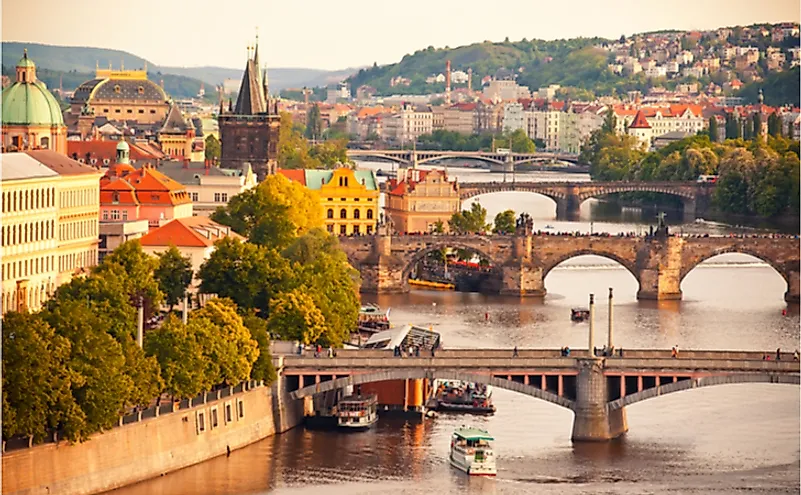Did You Know That The Czech Republic Has Been Renamed Czechia?

The Czech Republic is a country in Central Europe that was formed in 1993 following the dissolution of Czechoslovakia in 1992. Czechoslovakia gained independence from the Austro-Hungarian Empire in 1918, was occupied by Nazi Germany from 1939 until 1945 during the Second World War, and was then part of the Eastern Bloc from 1948 until 1989. Soon after the dissolution of the Soviet Union in 1991, Czechoslovakia peacefully dissolved, resulting in the creation of two separate sovereign nations: the Czech Republic and Slovakia.
Origin Of The Name "Czech"
Part of the territory that is now occupied by the Czech Republic was traditionally known as Bohemia, and the name "Czech" was derived from the Czechs, who were a Slavic tribe that inhabited the region. The Czech people, who were also referred to as Čechové, are believed to be named after the tribe’s leader, Čech. Since that time, and as the Czech language evolved, several variations of the name have existed.
Why Czechia?
Following the dissolution of Czechoslovakia and the separation from Slovakia, the Czech Republic wanted to adopt a shorter English name that was easy to pronounce and write. The State Department of Foreign Affairs suggested Czechia in 1991, but the name did not receive parliamentary approval until 2016. However, the name Czechia is not new, as it was used as far as the 16th century. Prior to the formation of Czechoslovakia, the territory was part of the Kingdom of Bohemia, and its inhabitants were known as Bohemians regardless of the language they spoke. Those who spoke the Czech language were known as "Czech." In the 19th century, individuals living in the territory wanted to be recognized as Czechs rather than Bohemians. The name Czechia was intended to be used by the international community since it was believed that "the Czech Republic" was cumbersome to pronounce and write, while others still referred to the country as "Czechoslovakia."
International Recognition
Some critics believed the adoption of the name Czechia would fail because the country's official name, the Czech Republic, was already established and widespread globally. Others suggested that the name sounded too similar to Chechnya, which is a Russian federal subject officially known as the Chechen Republic. During the aftermath of the Boston Marathon bombing in 2013, the Central Intelligence Agency (CIA) incorrectly announced the nationality of the bombing suspects as "Czech" instead of "Chechen," prompting the Czech Embassy in Washington, D.C. to demand an apology and immediate clarification. Up until 2016, the Ministry of Foreign Affairs had spent more than $42 million USD advertising and marketing the country as a tourist destination under the name of the Czech Republic, and the sudden name change was expected to cause some degree of confusion. Additionally, adoption of the new name created little excitement or debate within the country, since the Czech population referred to their country as Českorather than the Czech Republic, and therefore Czechia was an insignificant change.
Despite efforts by the Ministry of Foreign Affairs to promote the use of the new name, much of the global population is still unaware that the country adopted an official short name, and the use of Czechia still creates confusion. Nevertheless, it takes years for the international community to get used to new names. For example, many still refer to Eswatini as Swaziland, while Myanmar is still commonly known as Burma.











